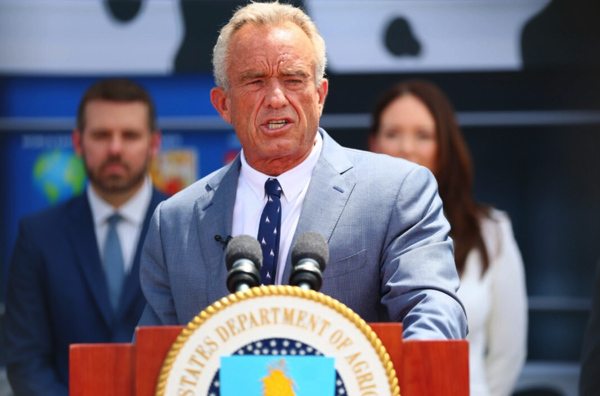 Parler
Parler Gab
Gab
- SSA reverses mandatory PIN policy, making in-person field office visits optional.
- 3.4 million fewer seniors and disabled individuals required to attend field offices annually.
- Over 1,800 SSA staff cuts exacerbate field office capacity concerns.
- Overpayment recoupments now permit up to 50% of benefits to be withheld.
- Modernization efforts balance fraud prevention with accessibility challenges.
The PIN dilemma: Modernization vs. accessibility
The SSA’s initial proposal, buried in a Federal Register filing, sought to combat fraud by requiring beneficiaries to use an online PIN to verify identities over the phone. The AARP swiftly criticized the move, warning it would force 3.4 million seniors to travel to field offices annually. Many lack internet access, face mobility challenges or reside in regions with limited SSA office access. “The core issue is that millions of Americans rely on the phone to handle Social Security with dignity and independence,” said Margie Omero, an AARP vice president, in a statement. “This policy would have turned that convenience into a barrier.” The SSA backtracked after public outcry, clarifying the PIN option’s “entirely voluntary” status. Meanwhile, critics argue the policy reflects broader tensions between cybersecurity efforts and equitable service delivery. “Multi-factor authentication is standard in banking, but millions of retirees don’t have smartphones or tech literacy,” said financial expert Alex Beene. “For many, this is about survival, not safety.”Staffing and capacity: A looming crisis
Compounding concerns, the SSA has slashed nearly 3,000 field office employees since January through buyouts and reassignments. The cuts, part of a bid to fill a $27 billion budget shortfall, have strained operations at over 1,300 offices. Wait times are swelling as demands rise. “We’re losing seasoned staff just as we’re adding new administrative hurdles,” said Kevin Thompson, a Social Security consultant. “It’s like cutting firefighters while rolling out longer ladders.” The agency’s decision to recover overpayments by withholding up to 50 percent of benefits further strains low-income recipients. For Tasha Miller, a widowed caregiver in rural Ohio, such measures are existential: “I rely on those checks for medicine. Taking half puts me at risk.”A pattern of controversial shifts
This isn’t the first time the SSA’s modernization efforts have sparked backlash. In 2023, its suspension of automatic Social Security number issuance for naturalized citizens forced 2.9 million individuals to line up at offices. Critics call these changes part of a troubling trend: prioritizing fiscal efficiency over vulnerable populations. “The agency’s focus on cost-cutting undermines the safety net,” said Jared Bernstein, a senior fellow at the Center on Budget and Policy Priorities (CBPP). “When you force seniors through bureaucratic gauntlets, you’re not saving money — you’re creating crises.”Balancing security and compassion
As the SSA recalibrates its PIN policy, the debate underscores a national challenge: preserving public trust in an essential lifeline while adapting to 21st-century risks. With 65 percent of retirees relying wholly on Social Security, any misstep risks destabilizing families and eroding confidence in core social infrastructure. “This isn’t just about technology — it’s about humanity,” said Beene. “We need a system that both keeps our money safe and keeps our elders safe.” For millions, the stakes remain urgent as the agency navigates an unenviable tightrope between innovation and equity. Sources for this article include: TheEpochTimes.com Newsweek.com CBPP.orgTrump’s banking order targets political deplatforming but leaves payment giants unchecked
By Willow Tohi // Share
Global food prices surge to two-year high amid supply crunches
By Willow Tohi // Share
Trump’s MAHA commission delays landmark report amid health policy overhaul debate
By Willow Tohi // Share
Rabies scare at Grand Teton National Park ignites conversations about over-vaccination in pets
By Willow Tohi // Share
Trump strikes unprecedented deal: Nvidia, AMD to pay U.S. 15% of China chip sales
By Ava Grace // Share
Governments continue to obscure COVID-19 vaccine data amid rising concerns over excess deaths
By patricklewis // Share
Tech giant Microsoft backs EXTINCTION with its support of carbon capture programs
By ramontomeydw // Share
Germany to resume arms exports to Israel despite repeated ceasefire violations
By isabelle // Share










